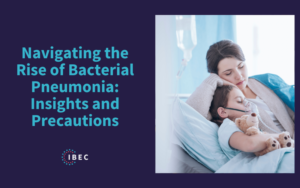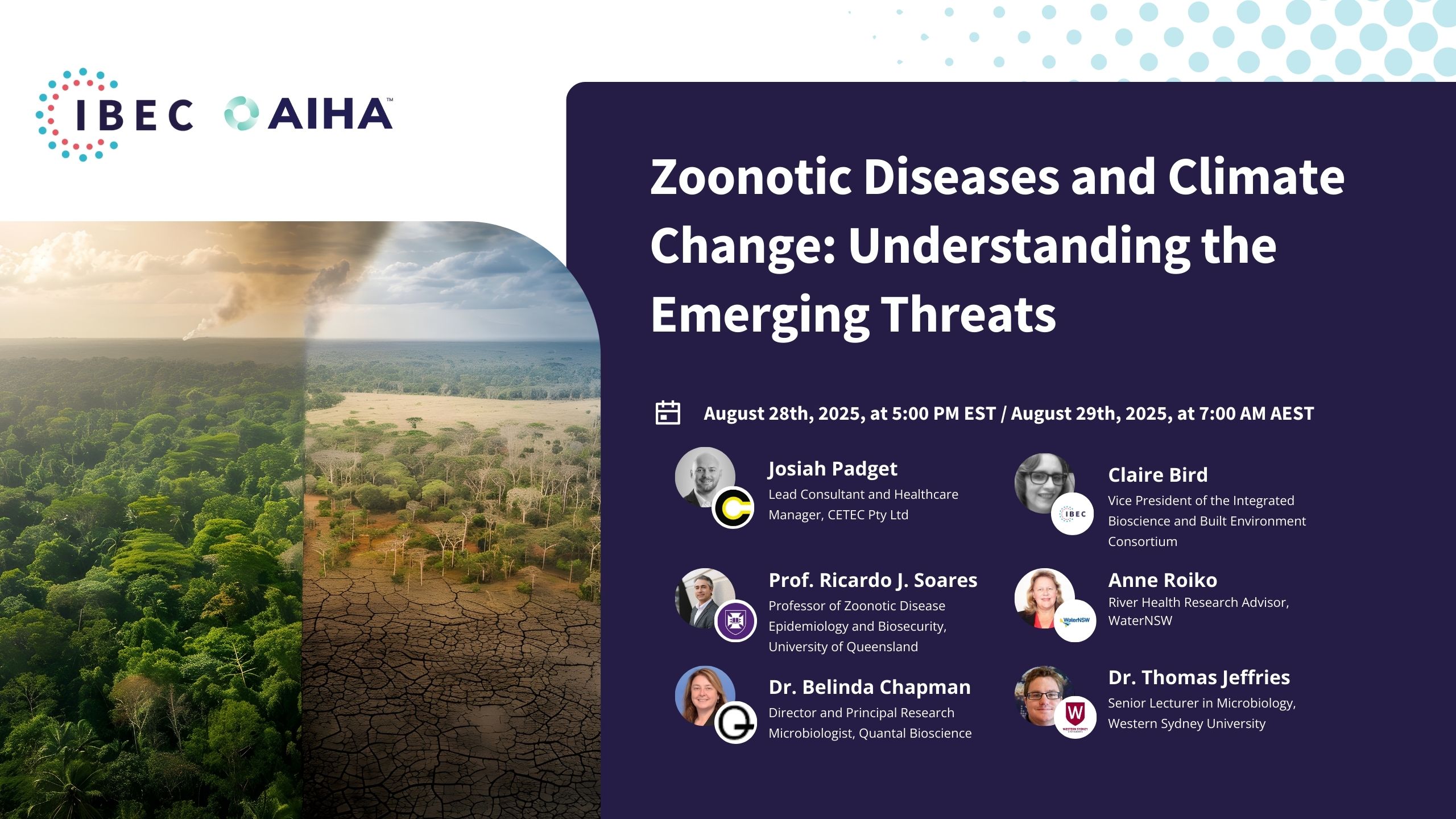IBEC Takes the Lead in Developing a Framework for Reducing Indoor Pathogen Transmission
Dear IBEC Partners and Supporters,
As we continue to navigate the ongoing threat of airborne pathogens transmission in our shared indoor communities, it’s more important than ever to recognize the importance of developing consensus driven frameworks for considering how to address airborne pathogen transmission in the built environment. At IBEC, our goal is to improve indoor air quality and ultimately create healthier environments to to reduce the risk of disease transmission indoors.
As we look across the policy and standards landscape in the U.S., we’re seeing the National Institute of Science and Technology releasing a comprehensive new standards strategy for critical and emerging technology. This effort will impact broad sectors of U.S. businesses and industries. The standards strategy released in early May by White House will set the expectations and parameters for years to come and will hopefully drive innovation and implementation towards efforts that benefit our nation and the world.
Despite the lessons learned from the COVID-19 pandemic, comprehensive frameworks and enforceable standards for reducing indoor airborne pathogen transmission still haven’t been developed in the US or elsewhere. Groups like the American Society of Heating, Refrigeration, and Air Conditioning Engineers appear to be working on standards that will affect individual aspects of airborne pathogen transmission in the built environment.
However, the reality is that many factors including human behavior, building age, alternative interventions, and community health all weigh heavily on airborne pathogen transmission. That’s why IBEC is taking the lead in bringing together experts from across industries focused on building design and operation, indoor air quality, and pathogen transmission to develop an operational framework for Reducing Indoor Pathogen Transmission.
We’re proud to announce that we will begin hosting working group meetings to develop the framework in the coming weeks, and we’re confident that it will play a significant role in improving indoor air quality and reducing the spread of airborne pathogens.
We encourage you to stay tuned for updates from IBEC as we continue to develop and refine our framework. If you are interested in participating in the working groups who will be leading this effort, please reach out.
Best regards,
Coby Gierke
Executive Director
Integrated Bioscience and Built Environment Consortium (IBEC)
406 370 9868
cobyg@weareibec.org
weareibec.org
Related Blogposts
How Climate Change is Propelling the Spread of Infectious Disease
By Stephane Bilodeau, Eng., Ph.D., FEC, Chief Science Officer at IBECClimate change is not only an ecological crisis; it fundamentally alters public health dynamics worldwide…
IBEC Statement on the Quarantine of Cargo Ship in Argentina Due to Suspected Mpox Case
The recent news regarding the quarantine of a cargo ship near Argentina’s Rosario Port due to a suspected case of mpox underscores the continued global…
Interdisciplinary Collaboration in Environmental Science: Pioneering Health Solutions with IBEC’s New CSO
The Integrated Bioscience and Built Environment Consortium (IBEC) proudly introduces its new Chief Scientific Officer (CSO), Stephane Bilodeau. Bringing over 25 years of diverse experience…
Navigating the Rise of Bacterial Pneumonia: Insights and Precautions
Navigating the Rise of Bacterial Pneumonia: Insights and Precautions As winter’s chill sets in, health professionals and organizations brace for the annual uptick in respiratory…
New COVID-19 Variant JN.1 Raises in the United States
JN.1 is a highly contagious, fast-spreading subvariant of omicron that has become the dominant strain in the country. According to data from the Centers for…
Pioneering Steps to Control Infectious Aerosols: Dr. Claire Bird Offers Expert Insight on ASHRAE’s New Draft Standard
As we navigate through the challenges posed by the COVID-19 pandemic and other airborne diseases, there is a dire need to implement measures that will…
New Commit To C.A.R.E. Resources Deliver Innovative Indoor Air Quality Solutions for Safer Workplaces
The Commit to C.A.R.E initiative The Integrated Bioscience and Built Environment Consortium (IBEC) and The American Industrial Hygiene Association (AIHA), two leading organizations committed to…
Staying Ahead of Severe GAS Infections and Other Secondary Bacterial Infections
Severe Group A Streptococcal (GAS) infections, including invasive disease (iGAS), can lead to life-threatening illness and death. CDC is looking into an increase in…
Industry Leader L’Oréal Pledges to Support Commit to C.A.R.E.
Industry Leader L’Oréal Pledges to Support Commit to C.A.R.E. With health experts warning of the triple threat of the continued spread of new COVID-19…
C.L.E.A.N. Lessons Learned: How to protect the healthcare system from current and future pandemics
The COVID-19 pandemic caught the world off guard. Health organizations all over the globe rushed into a quick response to protect people from the threat…











